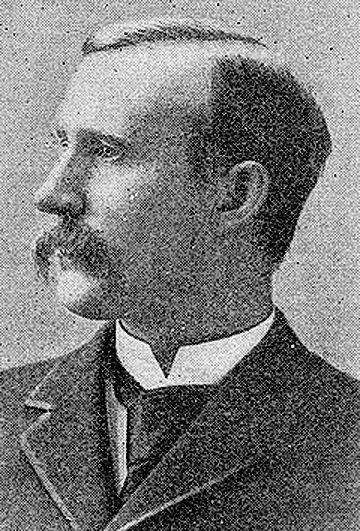
CEDARVILLE — This is the unofficial last weekend of summer, which culminates with Labor Day on Monday, Sept. 7.
While the coronavirus may dominate many discussions during (socially distant) gatherings, don’t forget to mention that the day can be traced back to Greene County, Cedarville, and James H. Kyle.
Born in Cedarville in 1854, Kyle was a senator from South Dakota, serving as the chairman of the Committee on Education and Labor, when he became aware that several states were celebrating a day to honor workers, but there was no specific date set nationally for the purpose.
A champion of the working man, Kyle was determined that a day should be set aside annually to honor the country’s working men and women, so he introduced Senate Bill S-730 Aug. 28, 1893. Oregon had made Labor Day a public holiday in 1887.
The bill reads, “Be it enacted by the Senate and the House of Representatives of the United States of America in Congress, assembled, that the first Monday of September in each year, being the day celebrated and known as Labor’s Holiday is hereby made a legal public holiday to all intents and purposes, in the same manner as Christmas, the first of January, the twenty-second day of February, the thirtieth of May and Fourth of July are by law made public holidays.”
After an affirmative vote by Congress, President Grover Cleveland signed the bill into law June 28, 1894, declaring Labor Day a national legal holiday. By that time, 30 states had been officially celebrating the day.
In Cedarville you will find a sign stating that this is the home of James H. Kyle, Father of Labor Day. And how the Greene County native ended up in South Dakota is quite the story.
His great-grandfather, Samuel Kyle, came to the United States in 1738, settling near Chambersburg, Pa. When Samuel Kyle Jr., decided to leave Pennsylvania, he selected Cedarville as his new home. His first wife died after the birth of their sixth child, then he married Rachel Jackson, a cousin of President Andrew Jackson, and with her he had 15 more children.
A staunch member of the Covenanter Church and War of 1812 veteran, he expected all 21 children to attend services regularly which included Sunday morning, afternoon and sometimes evening services. Kyle Jr., served as an associate judge of Greene County for more than 40 years, and was a well known surveyor.
One of those sons, Thomas, having returned from service in the Civil War, wanted to move away from Cedarville but was fearful of mentioning this to his rather-strict father. Eventually, however, he told his father of his desire, and Samuel agreed that if Thomas wanted to take his family elsewhere, there were enough members of the Kyle family in the area to keep the church open for generations and gave his blessing. He provided the young family with a wagon and team of fine horses to make the journey west.
Little James, who had been born on Feb. 24, 1854 before his father fought in the war, was not anxious to leave Cedarville. This was where his family and friends were located, and to move elsewhere was not a pleasing thought to him. But his father was determined, and with his wife, James and the other children, he loaded the wagon and began the westward journey.
They settled in Urbana, Ill., where other Cedarville families had previously migrated. There was a Covenanter Church already established, and a good school. Tom became a minister, supplementing his income by working as a surveyor, a skill he had learned from his father.
It wasn’t long before James decided he liked his new home, where he made new friends and became a very good pupil at the school. Having completed the course of studies in Urbana, he took a course in civil engineering at the University of Illinois. Then he came back to Ohio to study at Oberlin College, graduating in 1878.
He considered a career in law but eventually decided to become a congregational minister and graduated from Western Theological Seminary in Pennsylvania in 1881. He then moved to Salt Lake City, Utah in 1882 to become pastor of a church and director of a seminary there. In 1885 he moved to South Dakota because it was better for his wife’s health.
In 1890 he entered politics at the urging of many people after he made a passionate political address. This was shortly after South Dakota became a state. He was first elected to the state senate but shortly after that he was elected to the United States Senate. He refused to join a political party and was one of few people to enter the Senate as an independent, but he was supported by the state Democratic party at this time. During his first term in the Senate he joined the emerging Populist Party. Kyle was re-elected to the Senate by the state legislature in 1897. Soon after, as the Populist Party was disintegrating, Kyle switched to the Republican Party.
He died in July 1901.
Governor Frank Lausche planted a tree in Kyle’s honor on Labor Day the very next year, and signs were placed at the entrances to the community to remind people of their native son known as “The Father of Labor Day.”


